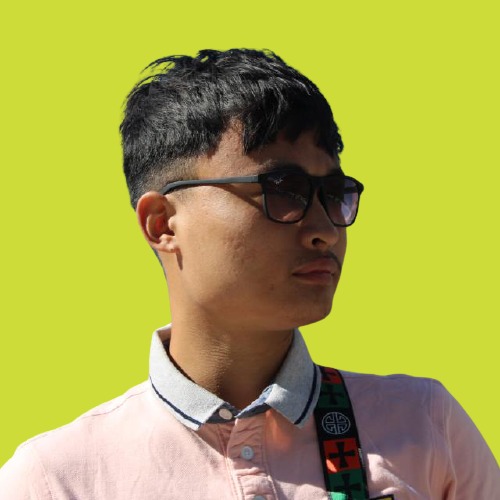
 Data Structure
Data Structure Networking
Networking RDBMS
RDBMS Operating System
Operating System Java
Java MS Excel
MS Excel iOS
iOS HTML
HTML CSS
CSS Android
Android Python
Python C Programming
C Programming C++
C++ C#
C# MongoDB
MongoDB MySQL
MySQL Javascript
Javascript PHP
PHP
- Selected Reading
- UPSC IAS Exams Notes
- Developer's Best Practices
- Questions and Answers
- Effective Resume Writing
- HR Interview Questions
- Computer Glossary
- Who is Who
How to create a Triangle with border colour using FabricJS?
In this tutorial, we are going to create a Triangle with border colour using FabricJS. Triangle is one of the various shapes provided by FabricJS. In order to create a triangle, we will have to create an instance of fabric.Triangle class and add it to the canvas.
Since FabricJS is extremely flexible, we are allowed to customize our Triangle object in any way we like. One of the properties that FabricJS provides is borderColor which allows us to manipulate the colour of the border when our object is active.
Syntax
new fabric.Triangle({ borderColor: String }: Object)
Parameters
Options (optional) This parameter is an Object which provides additional customizations to our triangle. Using this parameter, properties such as colour, cursor, stroke width, and a lot of other properties can be changed related to the object of which borderColor is a property.
Options Keys
borderColor This property accepts a String which specifies the colour of the border when our triangle object is selected. Its default value is rgb(178,204,255).
Example 1
Passing borderColour key with a String value
Let's see a code example of how we can assign a value to the borderColor property. We have assigned the value "blue" to the borderColor key which helps to create the blue border on selection of our triangle object.
<!DOCTYPE html>
<html>
<head>
<!-- Adding the Fabric JS Library-->
<script src="https://cdnjs.cloudflare.com/ajax/libs/fabric.js/510/fabric.min.js"></script>
</head>
<body>
<h2>Passing borderColour key with a String value</h2>
<p>Select the triangle to see the border colour</p>
<canvas id="canvas"></canvas>
<script>
// Initiate a canvas instance
var canvas = new fabric.Canvas("canvas");
canvas.setWidth(document.body.scrollWidth);
canvas.setHeight(250);
// Initiate a triangle object
var triangle = new fabric.Triangle({
left: 105,
top: 60,
width: 100,
height: 70,
fill: "#deb887",
borderColor: "blue",
});
// Add it to the canvas
canvas.add(triangle);
</script>
</body>
</html>
Example 2
Passing an RGBA value to the borderColor key
Instead of passing simple colour names as a String, we can also use RGBA values, whose components specify the amount of Red, Green, Blue and Alpha, where alpha denotes the opacity. In this example, we have used rgb(128,0,128) which is the rgb value for the colour purple.
<!DOCTYPE html>
<html>
<head>
<!-- Adding the Fabric JS Library-->
<script src="https://cdnjs.cloudflare.com/ajax/libs/fabric.js/510/fabric.min.js"></script>
</head>
<body>
<h2>Passing an RGBA value to the borderColor key</h2>
<p>Select the triangle to see the border colour</p>
<canvas id="canvas"></canvas>
<script>
// Initiate a canvas instance
var canvas = new fabric.Canvas("canvas");
canvas.setWidth(document.body.scrollWidth);
canvas.setHeight(250);
// Initiate a triangle object
var triangle = new fabric.Triangle({
left: 105,
top: 60,
width: 100,
height: 70,
fill: "#deb887",
borderColor: "rgb(128,0,128)",
});
// Add it to the canvas
canvas.add(triangle);
</script>
</body>
</html>
